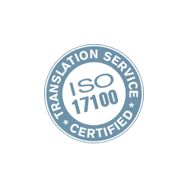Ukrainian
Ukrainian / Українська Ukrainian is an East Slavic language spoken by approximately 30 million people in Ukraine. During Soviet era in Ukraine, Russian took over as the main language of education and employment. After Ukraine’s declaration of independence in 1991, Ukrainian was reinstated as the official language and is now used in all parts of life.





